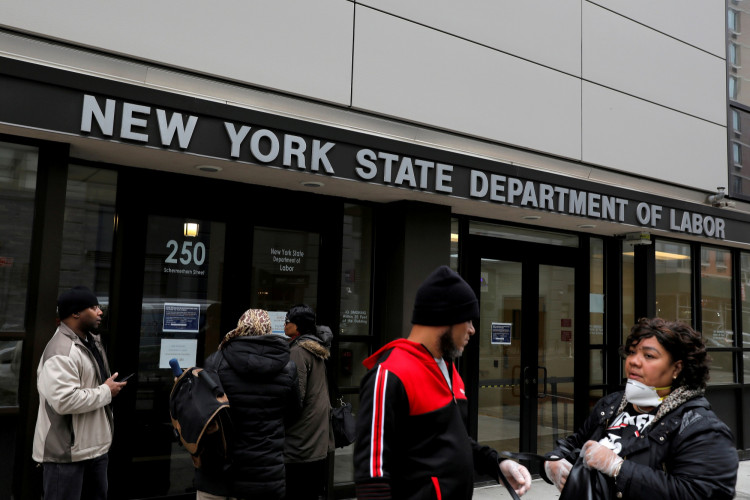The number of people in the US that have filed for unemployment benefits since mid-march has now reached a record 26.5 million. The staggering figure essentially means that the jobs gained during the country's employment boom have now been wiped out as a direct result of the coronavirus pandemic.
As the pandemic continues to spread throughout the country, some states have ramped up their efforts to mitigate the spread of the virus. This includes extensions of shelter-in-place orders in some cities, particularly those with already high numbers of confirmed cases and mortalities.
The ongoing lockdowns have caused a deep economic slump with business activities in some areas screeching to a halt. New data released on Thursday revealed that the economic activity in the US has shrunk to an all-time low this month. Economic metrics such as home sales and consumer spending have also plummeted to new lows.
Economists at MUFG in New York have pointed out that the country will likely have a hard time getting out of the current recession. The economic outlook after the crisis is over is also looking bleak as it would likely take months if not years for the country to fully recover.
For the week ending on April 18, the US Labor Department reported a seasonally adjusted total of 4.427 million applications for state unemployment benefits. This was preceded by 5.237 million applications over the previous week. Since March 21, the total number of applications the department had received has now reached 26.453 million.
The massive figure represents around 16.2% of the country's total labor force. Based on the data available, analysts forecast that more than 30 million Americans could lose their jobs, pushing the country's unemployment rate to levels not seen since the Great Depression.
The frustration of millions of Americans who have lost their jobs or forced to close down their business has already reached a fever pitch. The dire situation has led to a number of protests across the country, with people calling on the government to end the lockdowns and to reopen the economy. The protesters' sentiments have been echoed by US President Donald Trump, who also expressed his anxiousness to reopen the country's ailing economy.
Despite not meeting the criteria to safely lift restrictions, some states have chosen to reopen their economies. Health experts have warned that the premature lifting of quarantine restriction could lead to a surge in new infections. Some economists have also pointed out that even if businesses reopen, there is no guarantee that everyone will feel safe visiting crowded areas with the virus still spreading across the country.






